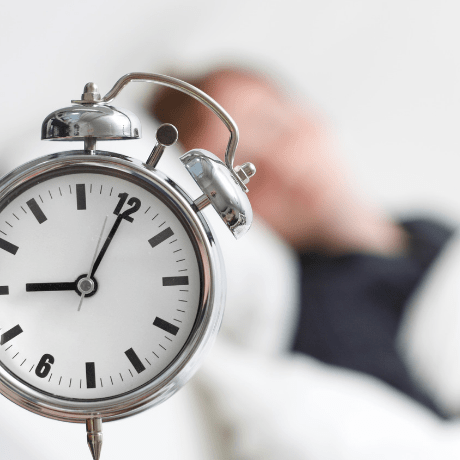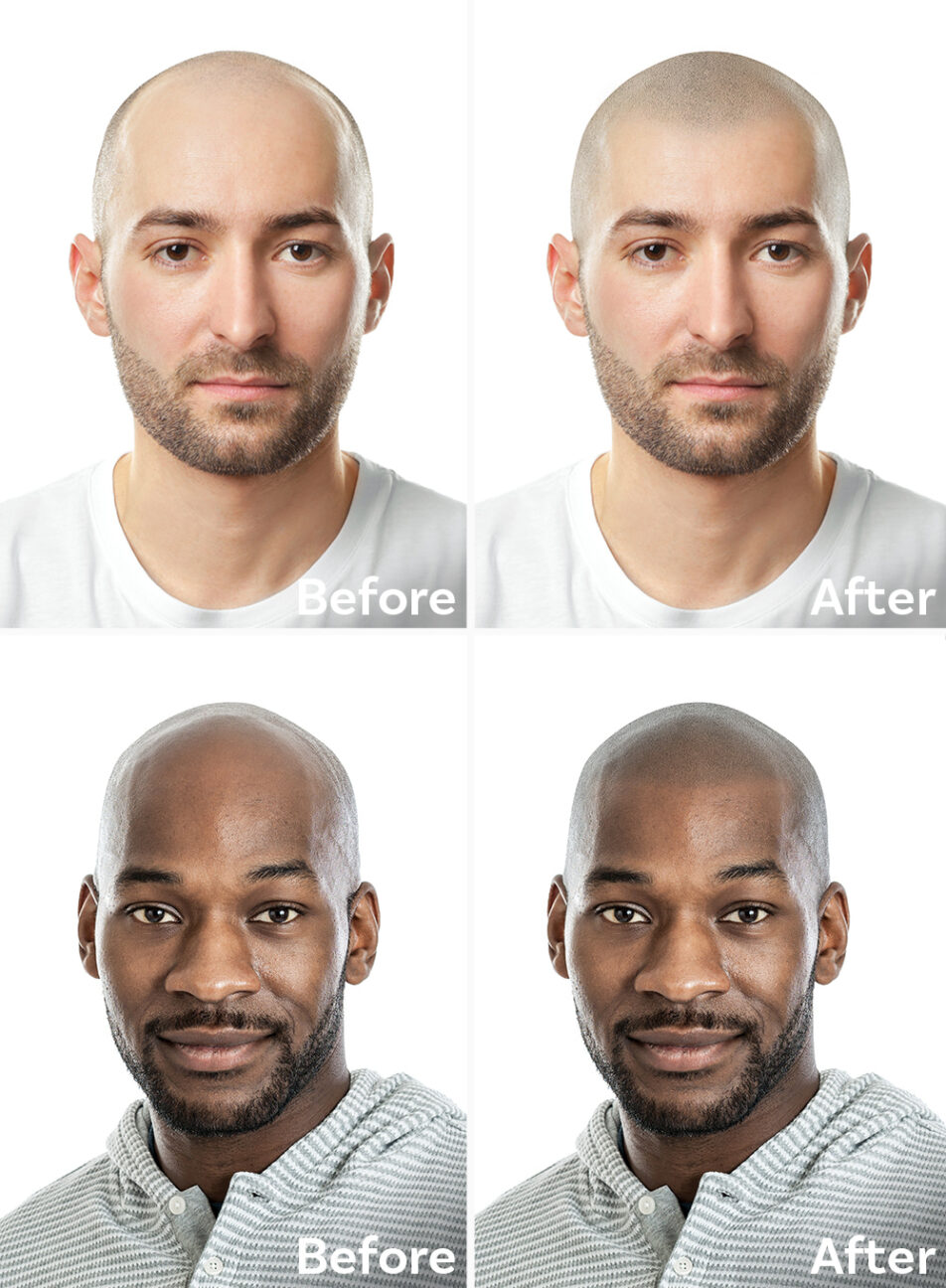Most of us look forward to getting into bed and resting for the night. But millions of people around the world suffer with lack of sleep each night. According to the National Heart, Lung and Blood Institute, sleep is crucial to maintaining a healthy body.
A good night’s sleep helps to support emotional wellbeing and healthy brain function. It also plays a key role in maintaining physical health, our own safety and ability to perform day-to-day tasks. But how does sleep affect our hair, and does a lack of rest lead to us losing it?
Can lack of sleep lead to hair loss?
There is nothing we can do to change our genetics which is the main contributing factor to male pattern baldness. While a lack of sleep has no effect on our DNA, it can alter our hormone levels.
How could a lack of sleep lead to hair loss? Our normal sleep cycles produce human growth hormone (HGH). Those who have trouble sleeping may have lower levels of HGH. One of the many side effects of this can be the thinning of hair. Achieving a better quality of sleep may help to reverse this process.
A lack of sleep is also a form of stress, and stress is well known for having a negative impact on our hair. Not only can it increase hereditary hair loss, but it can also lead to conditions such as Telogen effluvium.
How much sleep should you get every night?
According to the Sleep Council, people aged between 18 and 65 should average between 7 to 9 hours each night. Of course, we are all individuals and require different levels of sleep. But there is a big difference between how much our bodies need to remain healthy and how much we can get by on.
The Sleep Council also conducted a survey about how much sleep we get as a nation in the UK. The results revealed that 70% of us sleep for less than 7 hours a night. And 27% of Brits have issues forming a regular sleeping pattern.
How to get a better night’s sleep..
Changing the way you approach getting to sleep can dramatically improve your ability to get a good night’s rest. This involves both how you prepare for bed and your sleep environment. Our list below offers some suggestions for improving sleep to reduce hair loss:
Keep the bedroom cool, dark and quiet
Black out the room as much as possible to prevent natural light coming in. This also includes electronic devices such as TV’s and smartphones. An eye mask may also help. Try to minimise noise so you have no disruptions. Earplugs can prove useful for this. Keep the room cool so your body temperature doesn’t get too high. A good mattress and pillows that offer the right level of support will allow you to relax and sleep for longer.
Develop a night time routine
Going to bed and waking up at the same time will help establish a routine. This will you’re your body adjust to a regular schedule.
Restrict late night food and alcohol
Eating heavily before bed can affect your sleep quality. This also applies to drinking alcohol. Limit these to at least a couple of hours before going to sleep.
Preparing for bed
Repeating the same things each night can also help. This can be anything from brushing your teeth to going to the toilet, taking deep breaths or anything else to help you relax.
At Skalp we offer scalp micropigmentation for hair loss. A hairline tattoo at Skalp can reverse the affects of hair loss and provide you with a full head of shaved hair, maintenance free! Find out more about scalp micropigmentation treatment for hair loss here.
Top Related Posts:
Is There A Link Between Keto Diets & Hair Loss?
Do Protein Shakes Cause Hair Loss?
New Eczema Drug That Also Grows Hair
Men Can Now Save Their Hair Follicles For The Future



